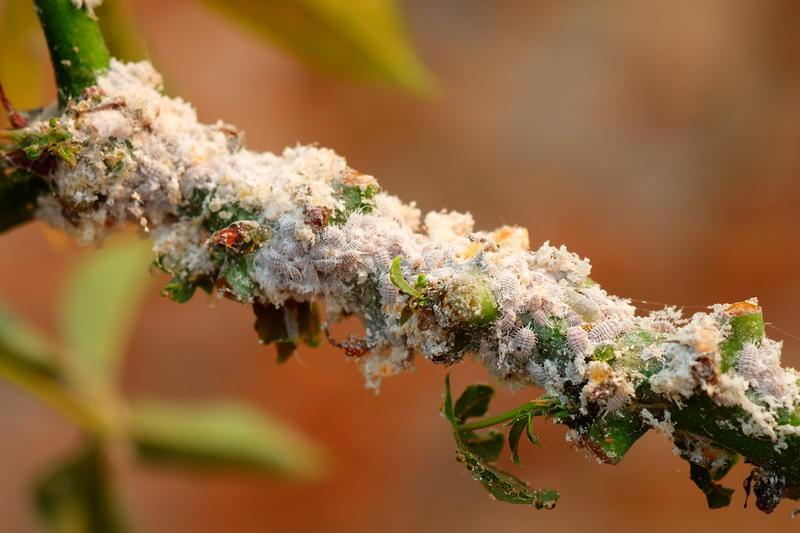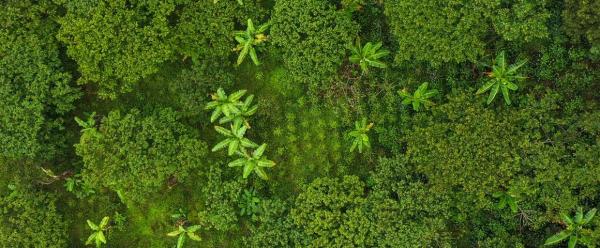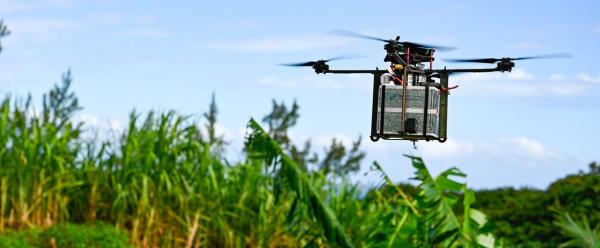Results & impact 10 October 2025
- Home
- Press area
- Press releases
- Biological control can limit deforestation and biodiversity loss
In the tropics, biological control can limit deforestation and biodiversity loss

One invasive mealybug species caused major cassava production losses in Thailand during 2009-2010 © K. WyckhuysP. Moonjuntha (Thailand Department of Agriculture)
Biological control of invasive species is often perceived as an environmentally risky practice. Yet it can restore crop yields and ease agricultural pressure on the environment, while contributing to forest conservation. This is the conclusion of an article just published by an international team, which includes CIRAD, in Communications Biology – Nature. This paper illustrates the positive impacts of a biological control process implemented in Southeast Asia against the cassava mealybug, Phenacoccus manihoti (Hemiptera).
Expansion of the agricultural frontier is reduced after biological control
The cassava mealybug, which arrived in Thailand in 2009, caused a decline of almost 20% in yields of cassava, a crop grown on around 4 million ha in Southeast Asia. This triggered sharp increases in cassava prices and an expansion of crop surfaces, to the detriment of forests. Deforestation rates subsequently doubled, and even increased six-fold in the neighbouring countries. In 2010, the authorities introduced the host-specific parasitic wasp Anagyrus lopezi (Hymenoptera): the damage caused by the mealybug was reduced, the area needed for cassava crops contracted, and the pace of deforestation slowed.
“Thanks to almost real-time satellite imagery combined with statistical analyses, we have observed a 31-95% reduction in deforestation”, says Kris Wyckhuys, an agro-ecologist at the University of Queensland (Australia) and IPP-CAAS (China), and coordinator of the study. The scientists conclude that well-targeted biological control of crop pests increases yields and thereby avoids agricultural expansion and deforestation.
Biological control to preserve biodiversity
“This study confirms the importance of collaboration between conservation biologists and crop protection scientists in order to address the pest problems encountered by farmers” , says Kris Wyckhuys. Such agro-ecological approaches reconcile invasive species mitigation, biodiversity conservation and profitable farming. “By opting for biological control rather than pesticides, farmers defuse pest problems, enhance the profitability of their operations and concurrently become stewards of the environment”, says Jean-Philippe Deguine of CIRAD, co-author of the paper.
* Partners of the study:
- Institute of Applied Ecology, Fujian Agriculture & Forestry University, People’s Republic of China
- China Academy of Agricultural Sciences CAAS, Beijing, People’s Republic of China
- University of Queensland, Brisbane, Australia
- Zhejiang University, Hangzhou, People’s Republic of China;
- Xishuangbanna Tropical Botanical Gardens, China Academy of Sciences CAS, Xishuangbanna, Yunnan, People’s Republic of China
- Department of Agriculture (DoA), Ministry of Agriculture and Cooperatives, Bangkok, Thailand
- Charles Sturt University, Orange, NSW, Australia
- Brock University, St. Catharines (Ontario), Canada
- International Center for Tropical Agriculture CIAT – Asia regional office, Hanoi, Viet Nam
- CIRAD, UMR PVBMT, La Réunion, France
- Norwegian University of Life Sciences, Ås, Norway
Reference
Wyckhuys K.A.G., Hughes A.C., Buamas C., Johnson A.C., Vasseur L., Reymondin L., Deguine J.-P., Sheil D., 2019. Biological control protects tropical forests. Communications Biology - Nature .



























